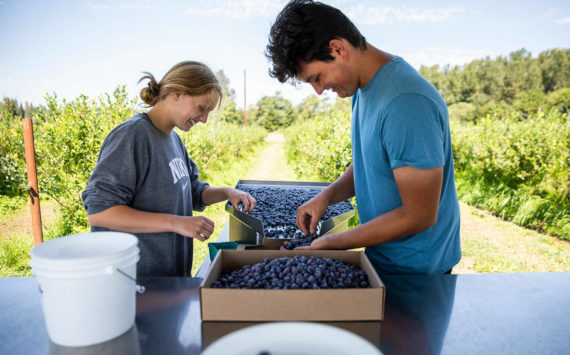ARLINGTON — Although the initial announcement came in December of last year, it wasn’t until Friday, Jan. 13, that Northwest Hardwoods’ facility in Arlington closed its doors.
Brian Narramore, vice president of human resources for Northwest Hardwoods, noted that not even the mill’s 45-year history could ultimately insulate it from the nation’s ongoing economic difficulties.
“Wood products are heavily tied to the housing industry, which has been in a slump since 2007,” Narramore said. “As people stop harvesting trees, the raw material for mills dries up.”
With their log supply in decline, Narramore explained that Northwest Hardwoods is taking two months to wait and see which direction the economy will turn next, which he acknowledged will require them to lay off the Arlington facility’s 60 full-time employees, although he believes the company will be able to find new jobs for many of those workers at other branches.
“In December, we told them we’d be curtailing our operations,” Narramore said. “On Saturday (Jan.14), we laid off the sawmill workers, and we’ll be doing the same for the rest of the mill’s employees by the end of this month or the first few weeks of February. We’re working with those employees to try and find them temporary or permanent positions at other mills, depending on their interests or whether they’re willing to relocate, so the total number of actual layoffs should be far less.”
Narramore recalled how Weyerhaeuser had acquired the mill in 1980, after its original opening in 1967, before it was sold to American Industrial Partners in August of last year.
“This isn’t the first time these employees have gone through something like this,” Narramore said. “We want to make a good business decision, but we’re also doing everything possible to help these people land on their feet. We’ve got a very difficult decision to make, and we’re also looking into state and federal grants for training for our workers, so those folks can be armed with good data and good directions for the future.”







